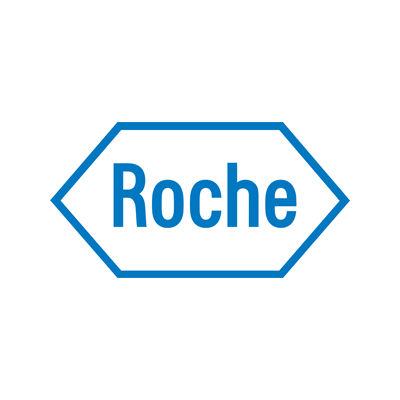预约演示
更新于:2025-05-07

Noema Pharma AG
更新于:2025-05-07
概览
标签
其他疾病
神经系统疾病
遗传病与畸形
小分子化药
疾病领域得分
一眼洞穿机构专注的疾病领域
暂无数据
技术平台
公司药物应用最多的技术
暂无数据
靶点
公司最常开发的靶点
暂无数据
| 排名前五的药物类型 | 数量 |
|---|---|
| 小分子化药 | 4 |
关联
5
项与 Noema Pharma AG 相关的药物靶点 |
作用机制 mGluR5拮抗剂 |
在研机构 |
最高研发阶段临床2/3期 |
首次获批国家/地区- |
首次获批日期- |
靶点 |
作用机制 PDE10A抑制剂 |
在研机构 |
原研机构 |
在研适应症 |
非在研适应症 |
最高研发阶段临床2/3期 |
首次获批国家/地区- |
首次获批日期- |
作用机制 DAT拮抗剂 [+2] |
在研机构 |
原研机构 |
非在研适应症- |
最高研发阶段临床2期 |
首次获批国家/地区- |
首次获批日期- |
7
项与 Noema Pharma AG 相关的临床试验NCT06315751
A Double-blind, Placebo-controlled, Phase 2b, Multi-center, Twelve-week Prospective Study to Evaluate the Efficacy and Safety of Gemlapodect in Adult and Adolescent Patients With Tourette Syndrome
This study is designed to evaluate the efficacy and safety of gemlapodect (NOE-105) on reducing tics associated with Tourette Syndrome (TS) in adults with TS. Adolescents will be enrolled after a sentinel cohort of adults is complete.
开始日期2024-09-10 |
申办/合作机构 |
NCT06385795
A Phase 2a, 4-Week, Single Arm, Open-label, Multi-center Study to Assess Safety, Tolerability, and Preliminary Efficacy of NOE-115 in Women With Vasomotor Symptoms Due to Menopause
The purpose of this study is to determine the safety, tolerability, and preliminary effectiveness of NOE-115 on moderate to severe vasomotor symptoms (hot flashes) due to menopause in women.
开始日期2024-04-22 |
申办/合作机构 |
CTRI/2023/05/052172
A Phase 2B, Multicenter, 30-week, Prospective, Cross-over, Double-blind, Randomized, Placebo-controlled Study Followed by a 52-Week Open-label Extension Study to Evaluate the Efficacy and Safety of Basimglurant Adjunctive to Ongoing Anticonvulsive Therapy in Children, Adolescents, and Young Adults with Seizures Associated with Tuberous Sclerosis Complex
开始日期2023-05-04 |
申办/合作机构  Noema Pharma AG Noema Pharma AG [+1] |
100 项与 Noema Pharma AG 相关的临床结果
登录后查看更多信息
0 项与 Noema Pharma AG 相关的专利(医药)
登录后查看更多信息
2
项与 Noema Pharma AG 相关的文献(医药)2023-04-25·Neurology
Phase 1 Trial of Darigabat for the Reduction of Acute Psychological and Physiological Panic and Fear Symptoms Following CO2 Inhalation in Healthy Participants (S8.005)
作者: Versavel, Stacey ; Jacobs, Gabriel ; Dandurand, Ann ; Gurrell, Rachel ; Duvvuri, Sridhard ; Sanchez, Raymond ; Guigliano, Amy ; Chang, Ih ; Pour, Koshar Safai ; Pastino, Gina ; Renger, John ; Zuiker, Rob ; Pham, Theresa
BMC Medicine
Exploratory analysis of the relationship between striatal connectivity and apathy during phosphodiesterase 10 inhibition in schizophrenia: findings from a randomized crossover trial
Article
作者: Garibaldi, George ; Burrer, Achim ; Misra, Akhil Ratan ; Huang, Gao-Yang ; Surbeck, Werner ; Cecere, Giacomo ; Homan, Philipp ; Holiga, Štefan ; Kallen, Nils ; Kirschner, Matthias ; Omlor, Wolfgang ; Rabe, Finn ; Spiller, Tobias ; Dukart, Juergen ; Umbricht, Daniel
48
项与 Noema Pharma AG 相关的新闻(医药)2025-03-24
A small Oakland, CA-based biotech hoping to take on the sprawling landscape of substance use disorders and addiction has reeled in $70 million.
The drug development startup, named Tempero Bio, secured the Series B to collect Phase 2 trial data for its daily pill called TMP-301. 8VC led the funding round, which was disclosed Monday morning. Other investors include founder Aditum Bio and Khosla Ventures.
Tempero expects to have Phase 2 data in alcohol use disorder (AUD) toward the end of this year and mid-stage data in cocaine use disorder (CUD) around the middle of 2026, president and chief scientific officer Ricardo Dolmetsch told
Endpoints News
in an exclusive interview. The funding provides runway through 2027, he said.
The AUD
Phase 2
began late last year. The CUD proof-of-concept study will start this year after an ongoing
drug-drug interaction study
wraps up soon, Dolmetsch said.
“It’s always been a giant unmet medical need. It’s highly stigmatized,” Dolmetsch said. “People have a lot of shame, and we devote a lot of resources to punishing people or trying to disincentivize them, but it doesn’t really solve the problem for the patient or for the family.”
Dolmetsch, who left his CSO post at gene therapy maker uniQure in 2023, spent more than half a dozen years heading up global neuroscience drug development at Novartis. While there, he worked under the direction of then-CEO Joe Jimenez and Mark Fishman, who was president of the Novartis Institutes for BioMedical Research.
Jimenez and Fishman reunited to form Aditum Bio, a biotech investor and incubator that sets up companies around clinical-stage assets or drugs about to enter human studies. They’re working out of their third fund, which closed at
$428 million
earlier this year.
The former Novartis executives started Tempero around a licensing deal for an asset developed by Nxera (then known as Sosei Heptares) — a mGluR5 negative allosteric modulator called TMP-301.
They’ve now brought in chief medical officer John Wagner, a former Takeda SVP and CMO at Koneksa, who is working on creating digital biomarkers for new drugs.
It’s a sort of comeback story for Dolmetsch and the team.
While at Novartis, Dolmetsch worked on a mGluR5 program called mavoglurant. They took the experimental medicine through a series of clinical studies in
cocaine use disorder
, obsessive-compulsive disorder, fragile X syndrome and Huntington’s disease.
“That actually showed efficacy in a study in patients with cocaine use disorder,” Dolmetsch said. But “mavoglurant had its own limitations and also it was off patent.”
Tempero hopes that by inhibiting mGluR5, they’ll be able to restore balance to the brain’s reward nucleus, which in turn would reduce cravings, increase enthusiasm for daily activities and hamper dysphoria, Dolmetsch said.
With TMP-301, they have a new investigational pill in the class. Dolmetsch said TMP-301 is more potent and has better pharmacokinetics than mavoglurant, which is now housed at Stalicla, a small Swiss startup that in-licensed the program from Novartis for
up to $270 million
.
Stalicla has said it has US government funding and can take mavoglurant into Phase 3 for cocaine use disorder. The company’s website is under construction and on Stalicla’s LinkedIn page, the startup says it is “now raising series C funding to advance both verticals,” referring to its work in both autism spectrum disorder and substance use disorder. Stalicla’s CEO, Lynn Durham, didn’t immediately respond to an Endpoints inquiry about the company’s status on Friday or last month.
Other companies are exploring mGluR5 for various conditions, like
Noema Pharma
in trigeminal neuralgia and seizures in tuberous sclerosis complex, and Addex in post-stroke and traumatic
brain injury recovery
.
In its Phase 2 AUD study, Tempero hopes to show a reduction in heavy use days, Dolmetsch said. The field has moved from abstinence being the main goal to harm reduction and harm mitigation, or the prevention of binging and daily drinking, the CSO said. The same goes with cocaine and other abused drugs, he added.
Naltrexone, an AUD and opioid use disorder drug, can reduce drinking by about 10% but is not very well tolerated, Dolmetsch said.
“This is an area sort of like obesity. The thing that is going to be transformative is something that has a really dramatic effect,” the Tempero executive said. “I don’t think the world really needs a medicine that just reduces your drinking a little bit or reduces your dysphoria a little bit or reduces your drug use a little bit.”
“I’ve worked a lot of my life on addiction, and I found that people often recognize that it’s a big unmet need, and then very rapidly after that, they’re like, ‘Well, you know, but addicts don’t like taking their medicines,’ or ‘They like being addicts,'” Dolmetsch said. “There are many, many misconceptions about what it’s like to have one of these disorders.”
The round took about eight months to come together and closed toward the end of 2024, he said, adding that it’s been difficult, historically, to garner investor and pharma interest in the addiction space.
“It started off being really difficult, and then suddenly it became really easy,” Dolmetsch said. Part of that is likely due to the hype that has built up around the weight loss and diabetes medicines from Eli Lilly and Novo Nordisk for their potential in treating addiction, among other conditions.
Jimenez’s Aditum had put about $25 million into Tempero prior to the Series B, the CSO added.
Jimenez previously told Endpoints that he sees Tempero’s work in addiction paralleling that of the obesity drug market, which has taken off in recent years thanks to the success of the GLP-1 class.
“I really believe that once we prove this can be a multibillion-dollar business, there’s going to be pharma companies that take a hard look at it,”
Jimenez told Endpoints
in October 2023.
Dolmetsch said he could envision Tempero going all the way to the market on its own. “Given the relative absence of drugs in the addiction space, we think there’s a lot of enthusiasm for having fairly accelerated registration timelines,” he said.
“There is a real potential to develop a company here that not only develops the medicines but also develops the infrastructure that allows you to treat people with substance use disorders,” he said. “And the post-Covid world is one where people are much more willing to go online and be connected to caregivers and get a prescription and then have their prescriptions sent home.”
If approved, Dolmetsch pictures TMP-301 being a drug that people use for a certain period of time to reduce their alcohol or drug abuse to the point where they have a “better relationship” with substances, he said. Then, they could eventually be weaned off the medication. But it would likely depend on individual circumstances, as they don’t want people to relapse, the executive added.
临床2期引进/卖出
2025-03-05
Celon Pharma said its therapy has a “unique pharmacodynamic profile, characterized by rapid enzyme dissociation, which distinguishes it from other PDE10A inhibitors.”\n Celon Pharma’s PDE10A inhibitor has reduced involuntary movements in a phase 2 trial of individuals with Parkinson’s disease.The Polish biotech tested two daily doses of the drug, dubbed CPL’36, in the study of 105 adults with Parkinson’s disease who had levodopa-induced dyskinesia (LID)—a term for involuntary movements caused by long-term use of the widely used Parkinson’s drug levodopa.By Week 4, the improvement in the Unified Dyskinesia Rating Scale was 12.3 units for patients who received the 20-mg dose and 13.58 units for those who received a 30-mg dose, hitting the trial’s primary endpoint.The study also hit “most” of its secondary endpoints, including a statistically significant difference in a related dyskinesia rating scale, the company added, without going into more details.No patients in the 20-mg cohort experienced severe adverse events, compared to 5.7% of the 40-mg group and 8.8% of patients who received placebo. A total of 11.1% of patients in the 20-mg dosing arm discontinued their medication due to treatment-related emergent adverse events, compared to 8.6% of the 40-mg cohort and 2.9% of the placebo group.“I am very pleased that the clinical effect of CPL\'36 has now been confirmed also for the treatment of LID dyskinesia in Parkinson\'s disease,” Celon’s CEO Maciej Wieczorek, Ph.D., said in a statement. “We believe that CPL’36 has potential to significantly contribute to the expansion and advancement of the global market for Parkinson\'s disease pharmacotherapy, and to provide sizeable clinical benefits to LID patients who are underserved by current treatments,” Wieczorek added.The post-market readout yesterday follows a “statistically significant” benefit demonstrated in a separate phase 2 trial in individuals with schizophrenia last year.Celon isn’t the only biotech trying to inhibit PDE10, an enzyme expressed in areas of the brain linked to a wide range of diseases that affect cognition. Swiss biotech Noema Pharma\'s gemlapodect—originally developed by Roche—reduced tic severity in a small phase 2 trial of 15 patients with Tourette syndrome last year. Meanwhile, EuMentis Therapeutics is aiming to take a PDE10A inhibitor into phase 2 in the first quarter of 2025, but it has failed to hit targets for the program in the past.Joanna Sierzputowska-Prarat, Celon’s main clinical neuropsychiatry lead, said in today’s release that CPL’36 has a “unique pharmacodynamic profile, characterized by rapid enzyme dissociation, which distinguishes it from other PDE10A inhibitors.”“We believe this attribute is key to the positive clinical outcomes we have generated thus far,\" Sierzputowska-Prarat added.

临床2期临床结果
2025-02-26
iStock,
Cristina Gaidau
Emalex is gearing up for a New Drug Application for ecopipam in Tourette syndrome later this year.
Emalex Biosciences’ experimental dopamine blocker ecopipam
cleared
late-stage studies on Tuesday, paving the way for the Chicago-based biotech to submissions with the FDA.
In the Phase III trial, 41.9% of pediatric Tourette syndrome patients relapsed after ecopipam treatment, as compared with 68.1% of placebo comparators—resulting in a 50% relapse reduction, a statistically significant result, as per Emalex’s news release. These results remained true when analysis was expanded to cover both adults and children.
Emalex reported that ecopipam was well-tolerated and its common side effects were excessive sleepiness, insomnia, anxiety, fatigue and headaches.
Emalex Chief Medical Officer Frederick Munschauer in a statement said these results highlight the efficacy of ecopipam to elicit and maintain “clinically meaningful reductions in vocal and motor tics” in children with Tourette syndrome—and “strengthen our confidence in ecopipam as a potential first-in-class treatment” in this indication.
Emalex plans to meet with the FDA and other international health authorities to discuss the potential regulatory path for ecopipam. A New Drug Application is planned for “later this year,” as per Tuesday’s announcement.
Tourette syndrome
is a neurological disorder characterized by tics, or sudden and brief uncontrollable movements. In the most severe cases, tics can disrupt a patient’s communication, quality of life and daily functioning. The exact causes of Tourette syndrome are not known and currently the disease is managed through certain neuroleptic medications or with behavioral therapy.
Designed to be taken orally, ecopipam differentiates itself from other Tourette treatments by acting on the D1 subtype of dopamine receptors, instead of on the D2 subtype. Dopamine is a critical neurotransmitter involved in controlling motion, and dysfunction in its signaling could lead to movement-related disorders.
With ecopipam’s Phase III win on Tuesday—and impending regulatory filings—Emalex pulls ahead of many other biotechs advancing Tourette treatments. One of these is Relmada Therapeutics, which earlier this month
acquired
sepranolone from Asarina Pharma for €3 million. The asset, a first-in-class GABAA modulating steroid agonist, is currently ready to enter Phase IIb development.
Also in the Tourette space are
SciSparc
, testing a synthetic form of tetrahydrocannabinol, and
Noema Pharma
, advancing a PDE10A inhibitor, likewise assessing their respective assets in mid-stage studies.
临床3期临床2期并购
100 项与 Noema Pharma AG 相关的药物交易
登录后查看更多信息
100 项与 Noema Pharma AG 相关的转化医学
登录后查看更多信息
组织架构
使用我们的机构树数据加速您的研究。
登录
或

管线布局
2026年02月08日管线快照
管线布局中药物为当前组织机构及其子机构作为药物机构进行统计,早期临床1期并入临床1期,临床1/2期并入临床2期,临床2/3期并入临床3期
药物发现
1
1
临床2期
临床3期
2
1
其他
登录后查看更多信息
当前项目
| 药物(靶点) | 适应症 | 全球最高研发状态 |
|---|---|---|
Basimglurant Sulfate ( mGluR5 ) | 三叉神经痛 更多 | 临床3期 |
Gemlapodect ( PDE10A ) | Tourette 综合征 更多 | 临床3期 |
NOE-115 ( DAT x NET x SERT ) | 潮热 更多 | 临床2期 |
Cendifensine ( MATs ) | - | 药物发现 |
NOE-109 ( mGluR2 x mGluR3 ) | 神经系统疾病 更多 | 无进展 |
登录后查看更多信息
药物交易
使用我们的药物交易数据加速您的研究。
登录
或

转化医学
使用我们的转化医学数据加速您的研究。
登录
或

营收
使用 Synapse 探索超过 36 万个组织的财务状况。
登录
或

科研基金(NIH)
访问超过 200 万项资助和基金信息,以提升您的研究之旅。
登录
或

投资
深入了解从初创企业到成熟企业的最新公司投资动态。
登录
或

融资
发掘融资趋势以验证和推进您的投资机会。
登录
或

生物医药百科问答
全新生物医药AI Agent 覆盖科研全链路,让突破性发现快人一步
立即开始免费试用!
智慧芽新药情报库是智慧芽专为生命科学人士构建的基于AI的创新药情报平台,助您全方位提升您的研发与决策效率。
立即开始数据试用!
智慧芽新药库数据也通过智慧芽数据服务平台,以API或者数据包形式对外开放,助您更加充分利用智慧芽新药情报信息。
生物序列数据库
生物药研发创新
免费使用
化学结构数据库
小分子化药研发创新
免费使用
